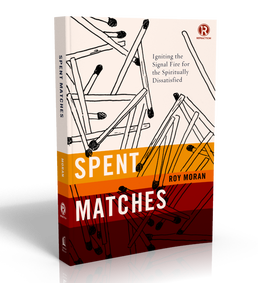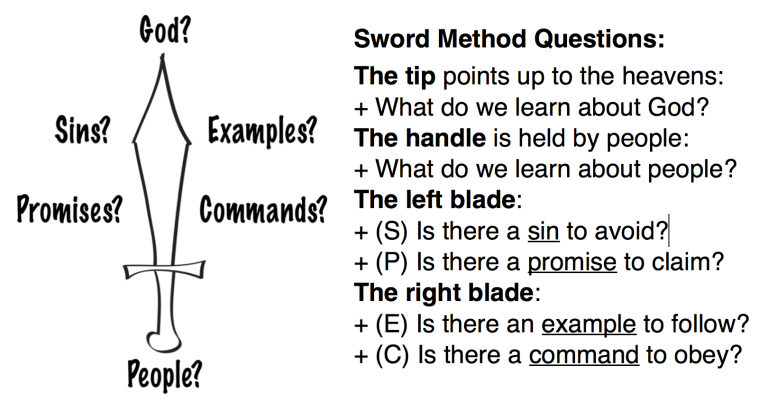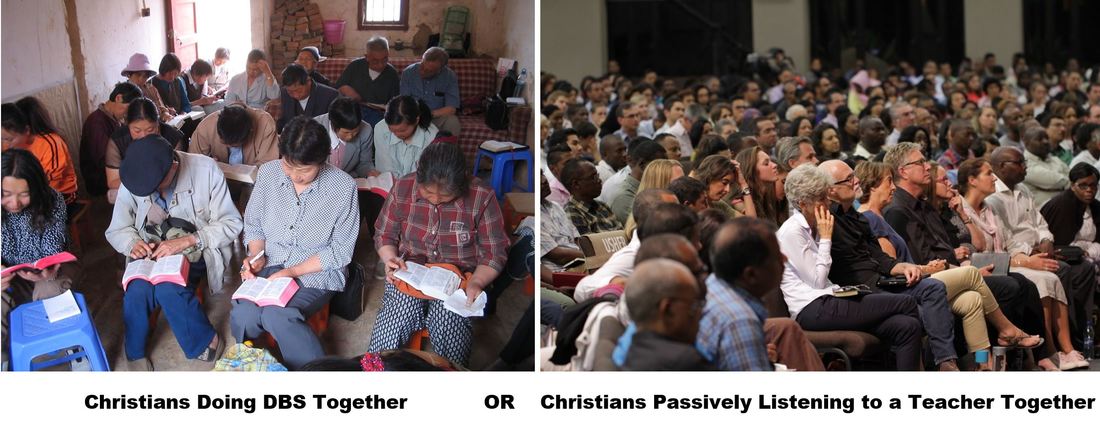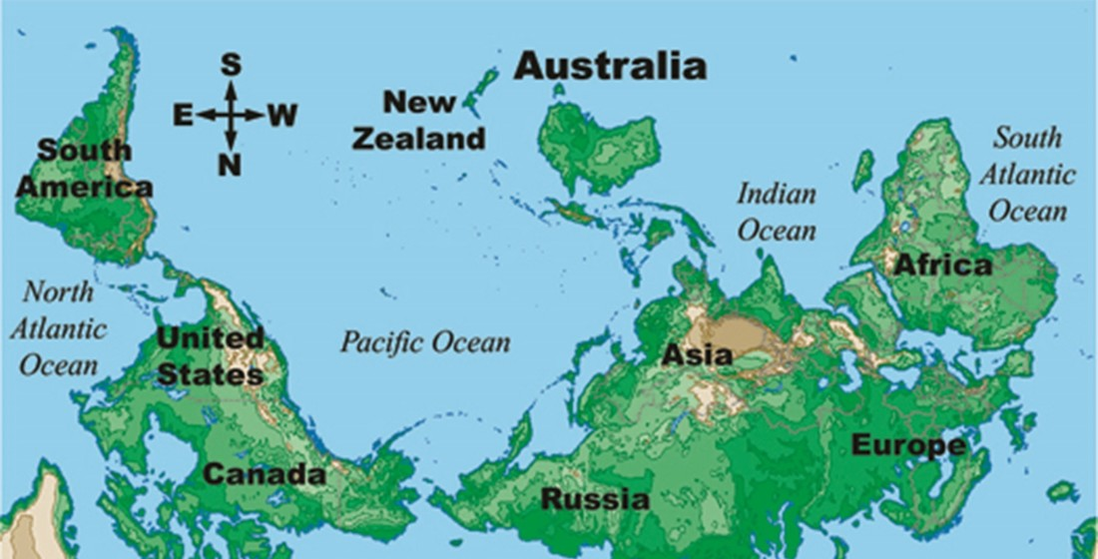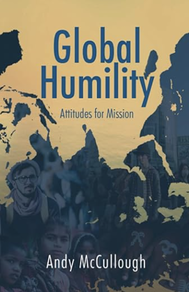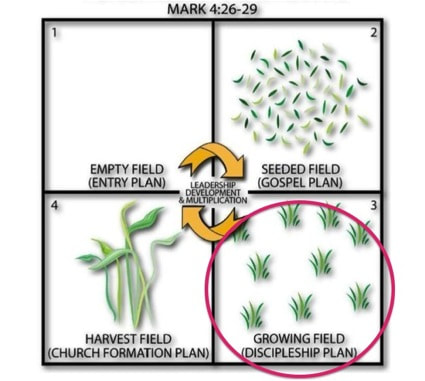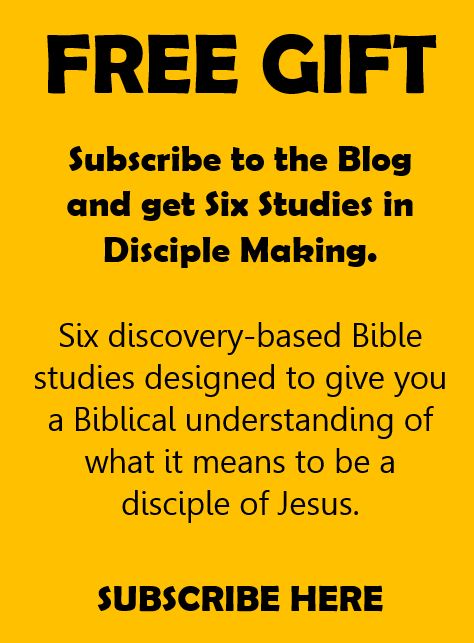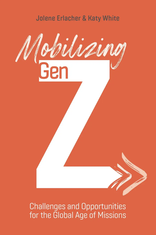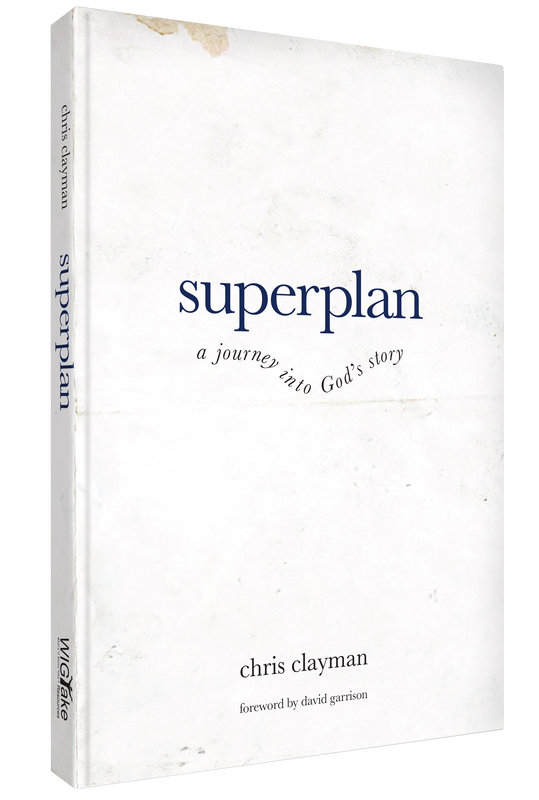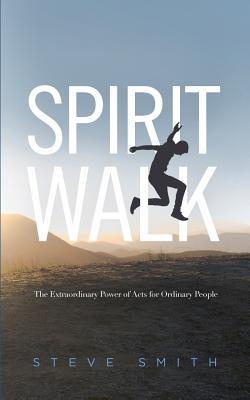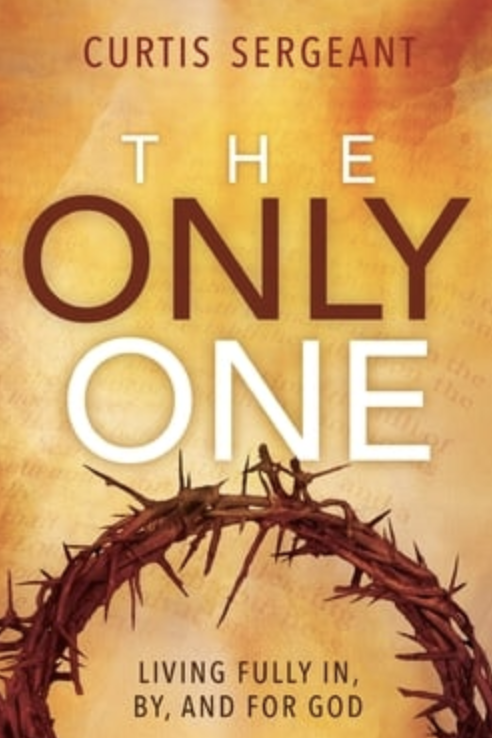|
If you have had the opportunity to listen to more than a few testimonies of people who were raised in lostness and came to faith, you have probably started to notice a couple of themes. One of those themes is the importance of a follower of Christ in their life. They met a Christian who through word or deed or both had an impact on their journey toward faith. Another that often comes up is the power of the word of God to bring conviction and give hope. In reading the Bible, they met a God who loved them enough to send his one an only son to save them from their sin, from fear and shame and from death.
In the scriptures, they met the living God. With this article, I want to provide tools to help you help your friends begin to explore the Bible and learn from the scriptures themselves. The Bible is both the greatest evangelistic tool that we have as well as the foundation for disciple making. Story Sets are apowerful tool to help your friends read the Bible. Story Sets A story set is a set of Bible stories that focus on a particular topic or theme. These can be used as a basis for exploring the Bible with your friend. Story sets are most often narrative in nature which allows pre-believers to enter into the story of the Bible and into discussion with you around the character and will of God. The purpose of story sets is to get people quickly into the scriptures, and to begin to teach them how to read the word of God. How To Use Story Sets As you connect with people who are far from God or if you are working with new believers, it will be natural to talk about the things that are important to our lives. There will be events in life that you will want to celebrate with your friends. There will be challenges in life that come up for which your friends will be looking for guidance. You will find yourself talking about the bigger questions of the meaning of life and the nature of God. Story sets give us a framework for introducing the word of God into these discussions. For example, let's say you are having a conversation with a young mother and she says, “I got into parenting before I was ready. Other people make it sound so easy. My mother just laughs. My grandmother says everything will be okay. But I’m trying to raise my kids without a map. Please help.” You could respond, “I’ve found a lot of guidance for parenting in the word of God. I’ve been so thankful that God gives us examples of parenting in the Bible. I wonder if you would like to read some of these stories together and see what we can learn from them.” You could then find or create a story set and read through a story each time you meet. Here is an example of a "New Parent" story set:
This particular story set finishes out by pointing not just to some good examples and lessons for parents, but with the story of Abraham and then the return of the prodigal son. Like this one, most story sets are evangelistic in nature, giving guidance for life while also pointing to Christ. One of the most commonly read story sets in the Muslim, Hindu and Buddhist world is Creation to Christ, a collection of stories, starting in Genesis, that give a general overview of the story of the whole Bible. Choosing The Right Stories How do we know which story set is the right story set to read with each of my friends? This is a discernment process that begins with prayer. Pray often for the opportunity to read the Bible with your friend. Pray for wisdom to know what stories in the Bible are the ones that will meet the felt needs of our friends and meet them where they are at. Choosing a story set also involves good listening. If we care about our friends, then we will be asking about their lives and as we get to know them, we’ll begin to hear the issues with which they are struggling. Then we can create or find an appropriate collection of Bible stories for their particular need. How To Read The Stories Isaiah 55:11 says, “When my word goes forth, it shall not return empty or void, but will accomplish the thing for which I sent it.” This is an amazing promise and it encapsulates why it is so important that we help our friends begin to read the scriptures. God will do the work! A process to read the Bible that missionaries around the world are finding to be fruitful is the Discovery Bible Study. It is a simple process that allows the Word of God and the Holy Spirit to be the main teachers. You don’t have to have all the answers but can trust that as you read the Bible with your friends, the Holy Spirit will guide them. It also begins the disciple making journey even before they come to faith as you model with them how to read the word of God and apply its teachings to your lives. [Learn more about Discovery Bible Study] The Discovery Process 1. Before you jump into the Bible story, be sure and spend some time connecting with your friend. How are they doing? How are their father and mother doing? How is work going? Spend time being with them. Don’t neglect this opportunity to extend hospitality. Share the week's highs and lows with one another. 2. Next turn to the passage. Read the passage aloud with your friend. Re-read it 3-4 times. Really! Re-reading helps ensure that they are actually getting into the passage. 3. Work together to retell the story in your own words. Don’t explain or interpret. Just retell the story. This provides an opportunity to make sure they are understanding the story and creates an opportunity to hear the story one more time. It also gives you and your friend practice in telling others the story. We want to be able to go home and say to a friend or family member, "Let me tell you the story I learned today." If in the process of your discussion your friend says something that is obviously not in the story, just ask the simple question, “Where do you see that in the passage?” 4. Next begin to discuss the following discovery questions:
5. Work together to think about what you can do this week to apply what you have learned in the passage. It can be helpful to actually write down an “I will . . . “ statement. 6. Spend time thinking about other people in your life who you could tell the story to this week. Ask, “Who can you tell this story to this week?” 7. Last question -- When can we meet again? Set a time to connect again and to read the next passage in the story set. Story Set Collection The following story sets are for you to use with your friends. Most are story sets that others have created and we have collected to share with you here. These should give you an idea of how you could create your own story sets to respond to the felt needs of your friends or disciples. 54 Trial DBS Series The parenting story set above comes from this great resource. I'd originally seen this collection of stories on a website which is no longer active. Thankfully my friend Chuck sent me a copy he received from a friend who was connected with Jerry Trousdale. This is a collection of 54 stores divided into nine major categories with six sets of six stories each. It is a really amazing resource. You can access this story set HERE. Creation to Christ - Long Version Beginning with Genesis, this study examines how God's plan of redemption unfolds throughout the Old Testament. It leaves the reader expectant for the fulfillment of the many prophecies found throughout the scripture. You can access this story set HERE. Creation to Christ - Short Version A modified, shorter version of the original Creation to Christ set. You can access this story set HERE. Stories of Hope A series of seven stories that introduce the reader to Jesus. You can access this story set HERE. Signs of John A series of seven stories that introduce the reader to Jesus. You can access this story set HERE. Learning to Follow Jesus A series of stories that allow you to disciple a new believer into the basics of following Christ. You can access this story set HERE. Other Story Set Resources
1 Comment
What is the person of peace? It's a term that is increasingly used both in the church and in the mission field. Practitioners of disciple making movements (DMM) often talk of searching for the person of peace and yet different groups use the term in different ways. All are correct but for those just beginning to explore the idea of the Person of Peace, a clarification might be in order. Some define the Person of Peace (PoP) as anyone who welcomes and opens up their relational network to to the messenger - be that a missionary or a local lay believer crossing the street in their neighborhood. In this use, the PoP doesn't necessarily need to be someone who initially accepts the message, but rather gives permission to the messenger to share with the group. They are often a gatekeeper of sorts - an elder of the village or the patriarch of a family. God is using them to open the door for the message to go forward in their context. This is also sometimes referred to as a House of Peace. A second way the idea of the Person of Peace is used is to simply indicate someone whom God has prepared to receive the gospel. They are a seeker, a God prepared person. Perhaps they've had a dream or a vision or have had a crisis in life that caused them to do some deep soul searching. Their heart is prepared to respond to the gospel. They are ready to receive the messenger and the message. A final way I often hear to idea of the Person of Peace discussed is that they not only are prepared to receive the gospel, but they are also ready and able to reproduce and share the good news with other. They receive the message and the messenger but they also readily receive the mission. When the woman at the well believes Jesus in John 4 she immediately takes that message back to he village where she tells everyone the good news and brings them to Jesus. Many would also refer to this person as a "Fourth Soil Person" who reproduces 30, 60 or 100 times from the Parable of the Sower. All of these definitions work but as you are reading the literature or listening to interviews with practitioners, it is helpful to understand how they are using the term. It was a bit confusing for me the first time I ran into the different ways it was being used. Perhaps there are other ways to think about the Person of Peace. If so, let me know your thoughts in the comments. Until then, I'd encourage you to download this discovery tool to help you learn about the Person of Peace from Jesus' ministry in the gospels. Trainer's notes are included on page three. As we immerse ourselves in the story of the scriptures, we allow the Holy Spirit to use them to shape our view of the world, of ministry and of ourselves. Scripture hammer trainings allow a trainer to step out of the way and allow the Bible to do the heavy lifting of the training. They require little charism on the part of the trainer, are hard to argue with and place a tool in the hands of those we are training that is immediately reproducible.
The basic idea is to create a list of scriptures that all point toward the basic Biblical principle or lesson you are wanting your trainees to grasp. A scripture hammer study is best done in groups of 2-5 and then debriefed as a group. You can create your own for any topic you'd like to train on. I've created a one page handout with six scripture hammer studies that I've learned from others and that I've been using to train. The focus of these particular studies are:
[CLICK HERE TO DOWNLOAD THE SIX STUDIES] I've written previously about a few of these topic and you can check those out at the links below: At every E2E and gospel conversation training that we do, we always start with the Father's heart. If we can help the church dive into scripture to discover God's heart and desires for our world, we have a great place to begin training disciples who will make disciples. We've turned that beginning session into a worksheet so that groups of Christ followers can discover together the Father's Heart and we want to share that today. Gather a group of friends. Set aside an hour and work through this discovery study. And then begin to pray and dream into the final question. You can work through the study below or download the worksheet HERE. Assignment: Together with a group of friends, read each passage below and write a simple summary of what the passage reveals about God’s heart and desire for our world. Passages
Finally, work through these two questions together.
Moran explores a number of topics through the lens of the paradigm shifts made at his church in Kansas City. One of the elements that Shoel Creek Church has adopted is the use of Discovery Bible Study (DBS) for their weekly groups.
Who can lead a DBS? We commission both doubters and worshipers to facilitate these groups. Our comfort level comes from two places. One, Jesus showed no anxiety when He commissioned both groups to take His mission forward. And two, we make the Bible the authority in these groups, so we aren’t leader dependent. Why DBS is helpful for those with little Bible experience? We have discovered that when you have people who are inexperienced in the Bible, staying in one simple passage makes their initial experiences comfortable rather than making them feel dumb. When a flurry of Bible passages starts being tossed around, they shrink from the discussion and try to find a place to hide. The tragedy is they may never come back. We also want our facilitators to understand that this is a process of discovery. People buy into, believe, and act on their own conclusions far more than the conclusions given to them by other people. The group is designed for people to hear from God themselves, so the idea of teaching or telling people what to believe about the passage doesn’t belong in a Journey (or Discovery) Group. Thoughts about facilitating a DBS Many facilitators have the gift of hospitality and love having people in their homes. They may unintentionally hinder the flow of the generational growth of the gospel with this gift. If every person in a group is to be seen as a potential disciple-maker, facilitators must not do anything that others think they can’t do. Another important shift is shared facilitation. If one facilitator is still doing all the facilitation after the third group meeting, he or she is doing a bad job! The process is so simple and repeatable that after being in a Journey/Discovery Group a few times, it is simple to ask the seven basic question and bring the accountability piece to the table. So, in effect, our facilitators are facilitator coaches. Dependency is a subtle and evil issue. The hard truth is that many of us love spiritual leadership because of the dependencies that it creates. Often others’ dependency on us gives us purpose and meaning. It can even provide a diversion from our own pain as we help others deal with theirs. In the guise of wanting to follow Jesus, we inherently stunt people’s growth by teaching them to depend on us, and we create unnecessary stress on ourselves. The more we do for people the worse off they are. It is no wonder we have a lethargic church in the West. Most of what flies under the name of ministry is a subtle codependent relationship between leaders and followers: leaders who need to be needed and followers who want someone besides themselves to be responsible for their spiritual journey. Group members often share by mentioning to friends that they learned something while reading the Bible. Since these group members are coming from pre-Christian relational networks, this mention creates a conversation, one that can lead to replication. When friends learn that someone is in a group reading the Bible, and no one is shoving religion down their throats, it piques their interest. Some might even want to join the group. This is where the DNA of replication begins. Groups need to multiply, not grow. The Bible is the authority in the discovery process, so no need exists for a subject-matter expert to explain it to people. God’s Word is not being taught, but read and obeyed. God is the teacher leading people to Jesus (John 6:44–46). When a friend asks to join, a facilitator can suggest that, instead of adding to this group, which will further create time issues, start another group. This is a winnable argument, because the process is so easy anyone can do it. Just do what has been done in the initial group. There is no traction in the spiritual journey without getting your fingerprints on the Bible. It was noon and I was meeting my new friend Musa* for an hour over my lunch break. We’d decided to meet at our favorite coffee shops to connect. I’d first met Musa when he had reached out looking for someone to practice his English with. He’d had a lifetime of classroom instruction in his home of Cairo, Egypt* but had few native English speakers with whom he could practice. The first time we met we covered the bases of getting to know one another. Where are you from? What is your family like? What do you like to do in your free time? The sounds of Arabic were all around him in the busy Cairo coffee shop where he sat. I then asked Musa what he did for a living. He is a young guy, in his early twenties and had just gotten started working as a mobile phone app developer. Then he returned the favor and asked me what I do. I’m in full time ministry so this is always an interesting question to answer. But I dove in. "I help people in churches in America understand and follow Jesus. That is pretty broad but it involves teaching, training, coaching, encouraging and casting vision with leaders and regular people. I'm not going to get rich, but I do find tremendous fulfillment in doing the things that I believe that God has made me to do. I bet that sounds a little crazy, but that's what I do and really it's who I am." I could tell He didn’t completely understand what I was talking about so he asked a few more questions but then moved on, wondering if I’d been to Turkey. He’d recently visited Istanbul and loved the city. I told him of our four and a half years living there and how much we loved the people we knew there. We meandered in and out of topics and then he asked a serious question, “I hope to hear an emotional situation you have been through?” I thought for a few minutes and then told him about a recent struggle I’d been facing and about how our family had spent time praying for God’s wisdom and healing. It was good to be transparent with my new friend even though it felt a bit hard and I wasn’t sure he was following everything. Musa’s English is good but he hasn’t had a lot of experience talking about personal topics. When I was finished, I said, “What about you? Have you been through any hard situations in life?” Musa was contemplating his answer when he looked at his watch. He gave me a wry smile. “I’ll have to tell you next time. I’ve got to go now. But let’s make sure and meet again.” As Musa left, I wondered about our conversation. Had I said too much about what I do? Should have I asked more questions about his faith and beliefs? Should I have offered to pray for him before he left? What if I had said something wrong? I spent some time praying for our time together asking the Lord to use it for his glory and to reveal himself to Musa. And then I removed my headphones and shut down Facebook Messenger on my laptop computer. I got up from my seat in the corner of my coffee shop in South Dakota, grabbed my mug and headed up to the counter for a refill. Though we were half a world away, Musa and I had enjoyed a great cup of coffee and better conversation. We continue to connect regularly, oftentimes just texting back and forth, sometimes hopping on a video chat to say a quick hello and at other times, setting aside an hour to grab a cup of coffee for an extended talk. To my surprise, Musa had quickly moved into questions of faith. I’ve introduced him to Discovery Bible Study and we are slowly working through a creation to Christ story set. We read a passage of scripture - I paste it into Messenger and he reads the Arabic and I read the English. We then ask some simple questions to help us discover what the story says about God, about people and about how we should live our lives. It’s been slow because Musa often brings up his own questions - questions that are stretching me and forcing me to dig into my own faith and theology. We started with his questions about the Christian idea of a triune God. We’re now pressing into the validity of the Bible. And those conversations are packed in between talk of family and culture and food and movies and dreams for life. It’s a whole lot of fun. I am the only true follower of Jesus that Musa knows. I’ve been able to pray for him and continue to pray for him regularly. Musa is one of many young guys that I am connecting with online all across the Muslim world and someday, I hope I will be able to meet all of them in person, if not in this life, then in the eternity of heaven. That is my prayer for each of them. There are 1.7 billion Muslims in the world today and collectively, Christians are sending one missionary into the Muslim world for every 405,000 Muslims.[1] This has to change. John Stott has said, “We must be global Christians with a global vision because our God is a global God.” Because of advances in technology and the globalization of our world, millions of people throughout the Muslim, Hindu, Buddhist, Animistic and un-religious worlds are working to learn English. They are going online to try and find people with whom they can practice speaking. A new door of missionary activity has opened and it is open to everyone who is a follower of Jesus and has an Internet connection. Geography is no longer a barrier to your relationship with a Muslim like Musa. C.T. Studd said, “If Jesus Christ be God and died for me, then no sacrifice can be too great for me to make for Him.” Will you sacrifice an hour a week to invest in a relationship with a young man or woman in the Muslim world who is looking for friendship and someone to practice English with? Let Us Help You
*For security, names and places have been changed. 1 - http://www.thetravelingteam.org/stats In our last post, Introduction to Discovery Bible Study (DBS), we looked at DBS as a discipleship tool to help followers of Jesus enter into a deeper, fuller reading of God's word and move toward greater maturity using DBS. With this article, we'll look at how to use DBS with your friends who are not yet followers of Jesus. Jesus commanded his followers to make disciples of all nations. Making disciples begins by helping people who are far from God find their way into a relationship with him. They need to hear the good news of Jesus. They need to be evangelized. There are a lot of images that probably come to mind when you think about evangelizing but I wonder if sitting down and reading the Bible with your Muslim friend is one of them. Richard Kronk conducted research on the conversion to Christianity of Muslims immigrants in North America and found that 82% of former Muslims in the study had found or recieved a Bible and read it. The Bible's influence should not surprise us. Scripture is clear that the word of God is powerful. Isaiah reminds us that: As the rain and the snow come down from heaven, and do not return to it without watering the earth and making it bud and flourish, so that it yields seed for the sower and bread for the eater, so is my word that goes out from my mouth: It will not return to me empty, but will accomplish what I desire and achieve the purpose for which I sent it. (55:10-11) The writer of Hebrews tells us that "the word of God is alive and active. Sharper than any double-edged sword, it penetrates even to dividing soul and spirit, joints and marrow; it judges the thoughts and attitudes of the heart” (4:12). And Paul in his letter to the Romans makes it abundantly clear that "faith comes from hearing the message, and the message is heard through the word about Christ " (10:17). If we believe what the Bible says about the Bible, then we should do all we can to help our Muslim, Hindu and Buddhist friends find their way into the Bible, to read it for themselves and allow the word of God and the Holy Spirit to work in their hearts and minds. Discovery Bible Study is a simple tool that you can facilitate. It allows non-believeing friends to explore scripture in a non-threatening way and provides you a simple format to help them discover God in His word for themselves. It relies on the word of God and the Holy Spirit rather than on you. DBS is in one sense a slow form of evangelism. It is as well a powerful tool to begin to set the DNA of new believers and begin training them even before they commit to following Jesus. It is simple - we read a scripture together and together explore the scripture through a series of questions. Because of this simplicity anyone can facilitate a discovery Bible study; you, new believers, even those who have not yet believed. Gordon Baines in his article, DBS in a Nutshell, cites six key reasons why he thinks DBS is such a powerful tool:
Intervarsity, in an article about DBS, shares four important principles to consider. Discovery Bible Studies should focus on:
So How Does It Work? The first step is to simply ask your friend or a group of friends or a family if they would like to read the Bible with you. You can simply ask your friends this question: I'm looking for someone to read the Bible with me. Would you be interested? See if you can get together with them at their home and with their family. Gather around tea or coffee and follow the format below. Basic Format for a DBS Below is a basic format for DBS that we teach at our Everywhere to Everywhere events. It follows a three thirds process. The first third of meeting time is dedicated to pastoral care and taking care of one another as well as accountability. The second third is dedicated to the scriptures through the discovery method. The final third is focused on application, practice and commissioning. Allow equal time for each third - 20-30 minutes at least. Here is what your DBS time can look like: *Looking Back CARE What is one thing you are thankful for and one thing that is stressing you out? ACCOUNTABILITY How did you do this week with your personal application? Who did you share with? Did we meet any needs in our community? *Looking Up PASSAGE Read the scripture passage out loud 2-3 times. RETELL Retell the passage using your own words as if you were having a cup of coffee with a friend. (Not what you think it means but simply retell it.) DISCOVERY QUESTIONS
*Looking Forward PERSONAL APPLICATION How will you practically apply what you learned in the passage to your life this week? What is one thing you will do or change because of this story? Who can you tell about what your learned this week? When? BLESSING THE COMMUNITY Is there anyone we know who has a need and can we as a group do something about it? Who can we bless? What Passages Should I Start With? The passages that you chose to read during your discovery time will depend on the context. Around the Muslim, Hindu and Buddhist world, many are starting with a set of stories called Creation to Christ studies. These start with Genesis 1 - God's creation of the world, and then works forward to Christ. Starting with creation and our creator God allows you to begin with a story that is similar to what Muslims, Hindus and Buddhists believe. You can find a creation to Christ study at the link below. [Creation to Christ DBS Study] Other story sets start with Jesus. These can be good for someone who wants to learn about Jesus or for your friend who is disillusioned with church and religion. Below are a few more story sets and ideas. [Stories of Hope DBS Study] -- [Signs of John DBS Study] As you connect and grow to understand your friend or group, you’ll find that you will begin to put your own story sets together in response to the questions and needs of the group. For example, if your group has particular anxiety over the power of jinn (evil spirits in Islam) in the world, you might put together four or five stories of power encounters with evil spirits from the Bible. In the Intervarsity article cited above, the author includes story sets for topics like graduation, Easter and leadership. [Intervarsity Story Sets] Do you have any story sets that you use for a particular topic or issue? Share them in the comments below. Discovery Bible Study is a tested method of reading the Bible with your not yet believing friends. It is simple. It gets them into the living and active word of God and it allows them to discover for themselves the living God of the Bible. I would encourage you to start by doing a DBS with some believing friends or with your family. Commit to doing all of the Stories of Hope study or Signs of John study above. It will take some time to get used to DBS so stick with it. Once you familiarize yourself with the process – this should only take a time or two – begin praying for an opportunity to invite your non-believing friend to read a story of God’s book with you. And be sure and check out the video and resources below. Learn it - Apply it - Share it - Today. Helpful Resources
Books: - Miraculous Movments, - What Jesus Started, - Contagous Discilple Making, - The Father Glorified Articles: How to Reach the World with a New Style of Bible Study Discovery Bible Study Various DBS Topical Story Sets Teaching Videos: City Team Videos - No Place Left Videos - Interviews: Gary Stump - James Nyman - David Watson *books are affiliate links The writer of the book of Hebrews hands out a gentle rebuke to the readers of the letter in chapter 5 verses 12 – 13: "In fact, though by this time you ought to be teachers, you need someone to teach you the elementary truths of God’s word all over again. You need milk, not solid food! Anyone who lives on milk, being still an infant, is not acquainted with the teaching about righteousness. But solid food is for the mature, who by constant use have trained themselves to distinguish good from evil." Something has gone wrong! The readers of this letter have somehow stagnated in their faith, remaining inmature and ungrowing. Some in fact, are in danger of falling away, of leaving the faith and returning to the idols of their previous lives. I think the message to the Hebrews could probably be given to many in our Western churches today. Though we have a long Christian heritage, our faith often sits in our lives like an ornament of something that has become just another decoration representing a sort of shallow civic religion rather than a transformative and transforming faith. The question then is how do help disciples of Jesus – everyone who calls themselves a Christian – train themselves to distinguish good from evil and become mature. One tool that I encourage groups of believers to use is Discovery Bible Study (DBS). DBS is a way to enter into a transformative reading of the scriptures in a church or group setting. It requires everyone to dig into the word, to wrestle with it and to apply it to their lives. It works toward obedience rather than just knowledge. Forms of discovery Bible study are at the core of most of the disciple making movements around the world today. Here is how it works. First, read the passage of scripture that your group has decided to study out loud to the group. Then have someone else read the passage out loud again. If it seems helpful, you could even read it a third time, out loud. This third time of reading the passage may be helpful because the next step is to have someone volunteer to retell the story or passage in their own words. The goal is to get a good enough grasp on the story so that you could retell it to a friend over coffee the next day if you needed to. Collective memory is better than individual memory so the group can feel free to jump in and help with the retelling. Next the facilitator (facilitator, not teacher) will lead the group into a series of questions that will help everyone enter into a deeper reading and understanding of the story. One of the more common set of questions is called the Sword Method which I’ll share here, but the focus is on asking questions that get the group engaging with the text. Here are the common sword questions:
I use a little different set of questions but the principle is the same. These discovery questions allow the Holy Spirit and God’s word to be the main driver of our learning. To keep the focus on obedience and not just learning knowledge, these discovery questions are followed by a time of application. The group works together to identify how the Lord would have them apply what they have learned from the passage into their lives that very week. Many discovery groups work together to come up with “I will” statements. “This week I will . . . “ These are written down with the expectation that the group will start the next week’s meeting time with accountability – How did you do with your “I will” statement? If it is important to obey Jesus, then it is important that we expect that as followers of Jesus, we will obey Jesus. This is one of the key differences between discovery Bible study and what we usually do at church on a Sunday morning. It’s where the rubber meets the road! DBS is an exercise in depending on God, not man and will drive those who practice it deeper into a mature, growing, active faith. This is not to say that preaching as we know it in the churches we grew up in is bad or wrong or not important. It is to say though that if a 30 minute sermon on a Sunday morning where an expert tells the church what the Bible says and how we should apply it to our lives is the only way we engage with the word of God as congregations, then we are probably not growing the way we should. We're still stuck with milk, not solid food! House churches all across the world are using discovery Bible study. In almost every context where the church is growing exponentially, some form of DBS is present. It pushes its practitioners to maturity as they learn to dig in for themselves, as they learn to self feed on the world of God and as they learn to apply the truths of scripture to their lives. There were two men in the story that Jesus tells about where you’ll build your house. They both “heard” the word of the Lord. They both knew what God had said. The key difference was that one chose to apply it, the man who built his house on a rock. The other was content just to know and his end was destruction. Discovery Bible Study is a great tool for the discipleship of believers young and old. It will teach new believers to self feed on the word of God and provide a simple tool for all believers to use to disciple others. DBS is also a fantastic tool to use to read the Bible with non-believers; with Muslims, Hindus and Buddhists. We'll explore that idea in a future article. Learn it. Apply it. Share it. Today! Learn from others about Discovery Bible Study
DBS in a Nutshell Cru DBS Guide Intervarsity DBS Training Video DBS Distilled in Mission Frontiers Mission Network Three Column Discovery Bible Study
When my son was six years old, he returned from his Turkish kindergarten class one day singing a new song - it was more of a chant really. "Ataturk yoktu, dushmen choktu. Ataturk geldi, dushmen yenildi!" It was a chant celebrating Ataturk, the founder of modern Turkey and someone who is reveared in Turkish culture. It was a chant celebrating Ataturk's guidance as a general during the first world war in keeping the Allied forces of Britian, Austalia and New Zealand from conquering Istanbul and gaining control of the Bosphorus Straight. It was a different view of the history I had learned in school. The words in essense say, without Ataturk our enemies were many but when Ataturk came he drove them out! Wait a minute! My home country - the United States - were on the side of the Allies. We weren't the enemies. Were we? Should I set my son straight? Tell him how history really happened? "We" were the good guys and "They" were the bad guys, right? If you begin to serve or live cross culturally, you will need to get used to these sorts of interactions. It seems that not everyone in the world views history through the same lense as the American history teachers who wrote my text books growing up. You'll meet Australian friends who will insist we've been using upside down maps our whole lives. You'll meet many from the Middle East (why is it the Middle East and not Middle West?) that believe that the Crusades were the work of greedy, blood thirsty crusaders and that the invasion of Iraq in the early 2000s was only about taking control of the oil. One Sunday morning at our very international church in Istanbul, when one of my American friends bemoaned the loss of influence that the U.S. was having on the world, one of my British friends let out a hearty "AMEN!" Outside of those that grow up in cross cultural experiences (like my son) , most of us grow up learning about the world through a very particular lens, one that, in general, paints "us" as the good guys and all of history moving toward "our" present reality. It's a narrow lens. As cross cultural ambassadors for Christ we must be prepared to humble ourselves and let go of our need to defend or promote our version of history. We are therefore Christ's ambassadors, as though God were making his appeal through us. (2 Corinthians 5:20; NIVUK) We are Christ's ambassadors and we can leave the ambassadorial work of representing our country to the U.S. diplomatic corp. Humility recognizes that, while I may not see it through the same lens, other people in other cultures might just have another view of things. There is a pride and an arrogance that tends to have us placing our group at the center of history - or of maps. Maps made in the U.S. during the cold war always seemed to put the U.S. square in the middle and then cut the U.S.S.R in half, relegating the largest country in the world to the fringes. Germans made maps for ages that placed them squarely in the center of the page - even though they are 60 degrees north of the equator. This required shrinking Africa(20% of the earth's surface) and enlarging Europe (7% of the earth's surface) until they were nearly the same size. And Australians printed maps that put them front and center at the top of the world! Is one map right and the others all wrong, or are they just maps of the same earth from very different perspectives? If we want to be Christ's ambassadors in a lost and broken world, it is helpful walk humbly into these sorts of conversations, recognizing that, right or wrong, everyone has their own perspective and that, when it comes to history, there is a lot more grey than we probably realize. And that is okay because while I may feel uncomfortable with my son learning a little different version of history than I did, the kingdom of God is not in trouble. The people you meet will most certainly view the world differently than you do. Will you be ready to hear their story and recognize that there are other perspectives than your own? Are you willing to learn? To place yourself in their shoes? For the sake of the gospel are you willing to see the world through their eyes? Take a nest step: Philippians 2: 5-11 Bible Study Instructions: Read the passage 2 - 3 times and then answer the following questions.
Do you have a plan to disciple new believers? How about a plan to continue to disciple mature believers?
Do you have a discipleship plan? In the great commission (Matthew 28:18-20), Jesus told us to go and make disciples. It was the last thing he commanded his followers to do. In order to be able to obey Jesus, it would be helpful to have a plan for making disciples. With this short article, I want to introduce some principles for beginning discipleship. But lets start by learning from the word of God. Discovery Bible Study Read Matthew 28:18-20 two times to yourself and then answer these questions.
How did you answer the questions above? Who should make disciples? As I read the passage, it seems pretty clear that everyone who is a disciple should be making disciples. If I am going to teach someone to obey everything that Jesus commanded, then this command is one of those commands. Jesus gives us a command to make disciples. Making disciples is Jesus' plan for kingdom growth. It's that simple. Here are a few ideas to help us begin to make a plan for discipleship that we can use and that we can train everyone to use. Discipleship Lessons Short Term Discipleship - getting started for new believers Long Term Discipleship - keeping moving for maturing believers Short Term Discipleship Short Term Discipleship should lay the foundation on which the new believer will build his or her life in Christ. It's sort of like boot camp for a soldier. They learn the basics but more importantly learn what it means to be a soldier. Here are a few guidelines for thinking about creating or finding a discipleship plan for new believers.
What a disciple does in the first three months of faith, shapes the DNA of the faith they will live out the rest of their lives. If the disciple is asked to passively observe the work of the church, passivity will likely be the DNA. Some examples of Short term discipleship plans can be found below. The main thing is to find or create a simple plan that you can use to help new believers in Jesus to begin a life obeying Jesus and growing in maturity. We have to be intentional to make disciples. We have to train our new disciples how to make disciples. When we do this, by the grace of God and with the help of the Holy Spirit, we begin to see multiplication. Long Term Discipleship A long term discipleship plan must move new disciples from milk to meat, giving them the tools to move into a lifetime of discipleship through dependence on the word of God and the working of the Holy Spirit. We'll talk more about long term discipleship in a future post. Learn it. Apply it. Share it. Today. *The ideas in this article come from pages 59 - 71 in Four Fields of Kingdom Growth. (read it for free here) Short Term Discipleship Plans
|
The E2E Community
Categories
All
Good Books
Archives
April 2024
|
Proudly powered by Weebly





